Theresa May confirms she will not lead Tories into next election
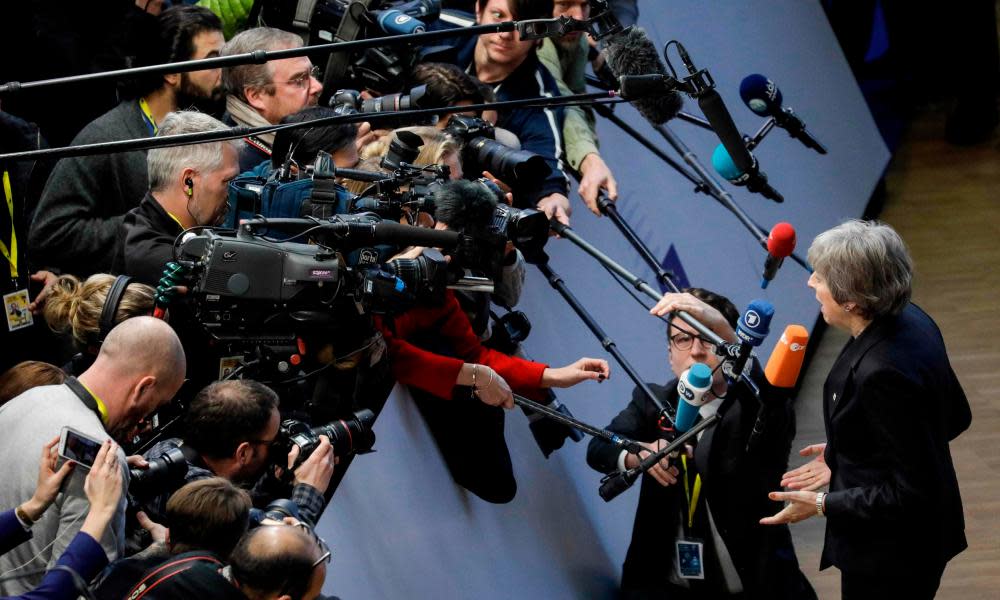
Theresa May confirmed she will not lead the Conservatives into the next general election as she arrived in Brussels to rescue her Brexit deal.
She refused to give a date for her departure from Downing Street, but made public her promise to MPs ahead of Wednesday’s no-confidence vote that she would quit before the next poll in 2022.
“Yes, I’ve said that in my heart I would love to be able to lead the Conservative party into the next general election, but I think it is right that the party feels it would prefer to go into that election with a new leader,” May said. “People try to talk about dates; what I’m clear about is the next general election is in 2022 and I think it’s right another party leader takes us into that general election.”
The prime minister survived by a margin of 200 votes to 117 in the party confidence vote, but is still facing calls to resign from senior figures on her backbenches, including Jacob Rees-Mogg.
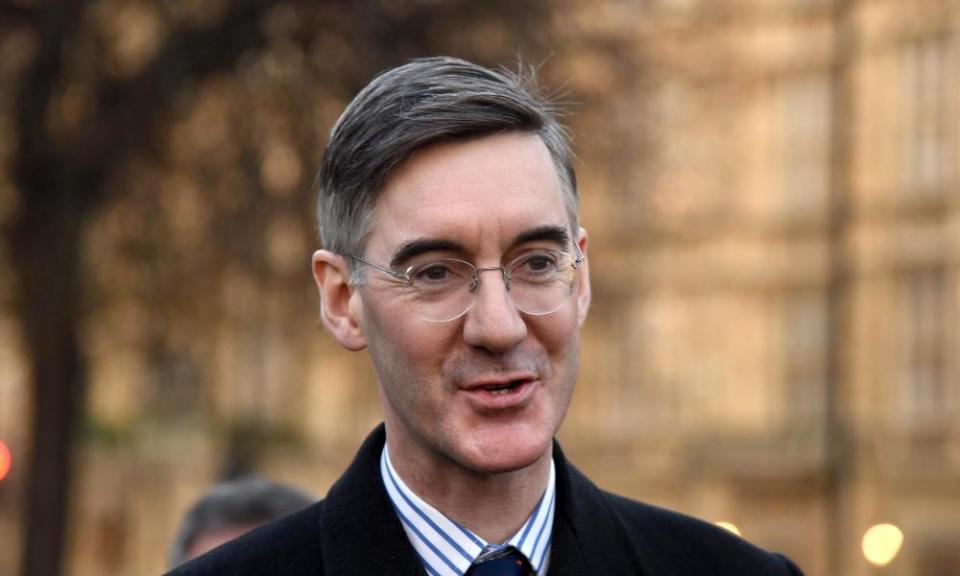
Arriving at a summit of leaders where she hopes to convince the 27 heads of state and government of the need for fresh concessions, May said she had heard “loud and clear” the complaints of those who voted against her and “the concerns there are in the House of Commons about this issue of the backstop and that they do not want it to be permanent”.
May was forced to defer a vote on the deal earlier this week after it became clear that she would lose by what the prime minister admitted would have been a “significant” margin.
She said she believed there was a chance to secure guarantees from Brussels “to get this deal over the line”, but downplayed hopes of an immediate breakthrough.
“I’ve already met [Irish taoiseach] Leo Varadkar, I’m going to be addressing the EU council later and I will be showing the legal and political assurances I believe we need to assuage the concerns members of parliament have on this issue,” May said.
“I know the EU27 will be discussing no-deal planning, and indeed the UK government is preparing us for no-deal planning, but I think – as I’ve always said – the best arrangement for everybody, for both the UK and the EU, is for us to agree a deal and get this deal over the line.”
The embattled prime minister is seeking legal guarantees that the UK will not be trapped in the so-called Northern Ireland backstop, which would entail being in a customs union with the EU in order to avoid a hard border on the island of Ireland.
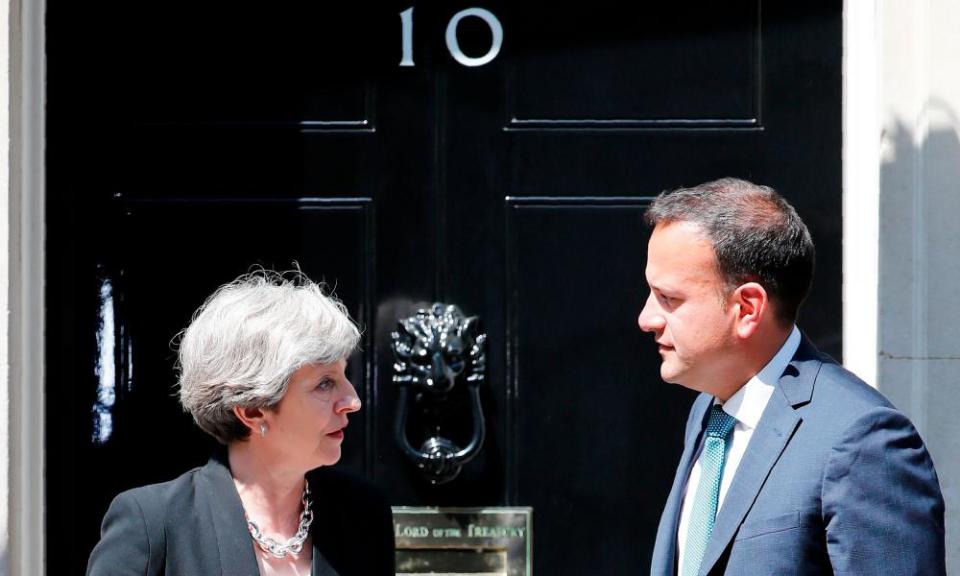
It is understood that she is seeking a legal codicil to the withdrawal agreement, known as a “joint interpretative instrument”. Such a device was used in 2016 to reassure the Belgian region of Wallonia when it was holding back on the ratification of the EU-Canada trade agreement.
It is as yet unclear what could be contained in the legal interpretation that would turn enough MPs around on the withdrawal agreement and accompanying political declaration on the future relationship for it to be ratified in parliament.
MPs have called for an explicit time-limit or a target by which both sides would seek to get out of the arrangement should it come into force.
“I don’t expect an immediate breakthrough, but what I do hope is that we can start to work as quickly as possible on the assurances that are necessary,” May said of her talks with the EU’s leaders.
Varadkar, disclosed that during a “long meeting” with the prime minister in the margins of the summit, the two leaders had talked over possible solutions, but that there had not been a meeting of minds.
He said: “I have to say some of the suggestions she made, made sense, others I thought were difficult but what i said unequivocally is that we want to be helpful, we want to help this deal over the line, but are willing to talk about explanation, clarification, statements explaining what the deal means but we couldn’t have anything that contradicted the withdrawal agreement.”
Varadkar said an expiry date on the backstop would “render it inoperable”. He added that it was in the UK’s gift to avoid a no deal Brexit and buy “more time to decide what it wants” by extending the two years of negotiating time allowed under article 50, or abandoning Brexit for good.
The EU is refusing to reopen the withdrawal agreement containing the terms of the backstop, which would come into force at the end of the transition period.
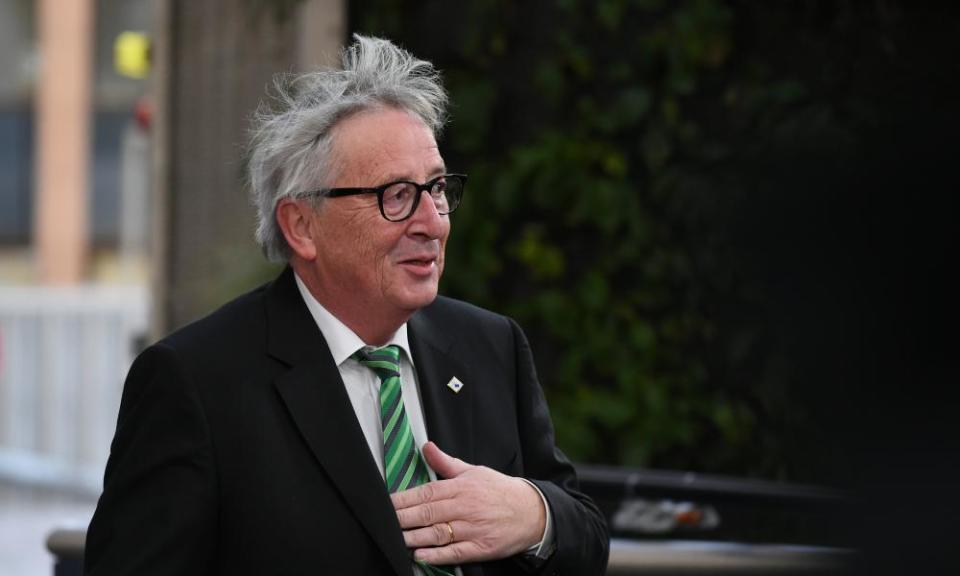
The EU is also yet to be convinced by the need for any further legal guarantees over the backstop.
The German chancellor, Angela Merkel, said: “We have seen that the prime minister has survived the vote and can continue with her work; that is good news. And we will hear from her again about what her ideas are. However, I would also like to say that I believe the exit agreement has been well negotiated and we will discuss among ourselves afterwards how we will proceed.”
“Of course we can talk about additional securing but here the EU27 will be very united and make their interests clear,” Merkel added.
Mark Rutte, the Dutch prime minister, said it would be “very difficult” to provide such a legal assurance without reopening the withdrawal agreement, which he said was impossible.
He instead offered to “demystify” the backstop, which he said would be a bad outcome for both the EU and the UK. Rutte also criticised the treatment meted out to the prime minister in the Commons.
“I saw some of the Labour people laughing at her when she said, ‘I listened’. This was not very British,” Rutte said. “The way she stood there and kept her composure and won this fight in her party, I have the highest respect for her.”
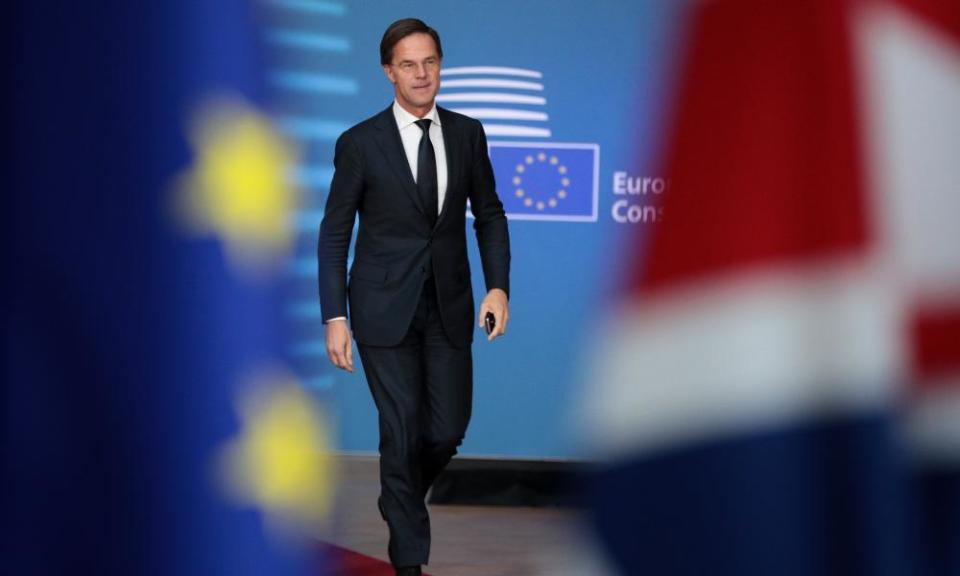
Xavier Bettel, the prime minister of Luxembourg, told reporters that the EU “must not renegotiate, we are not here to renegotiate”.
“If it comes to clarifying things, we’re certainly not against that,” he said.
Bettel added that he would support the British prime minister if she was to call a second referendum.
He said: “I will definitely not be against it if Theresa May will tell us ‘better a second referendum than a no-deal”.
Finland’s prime minister Juha Sipilä voiced the concerns of some at the suggestion that the EU might be able to guarantee the temporary status of the backstop.
“Legally binding assurances to Theresa May will be difficult,” he said, “but we all want to help. Our primary goal is that [the] new relationship will be before the backstop.”
The Austrian chancellor, Sebastian Kurz, predicted that there would not be a final offer from the EU until the new year.

 Yahoo News
Yahoo News 
